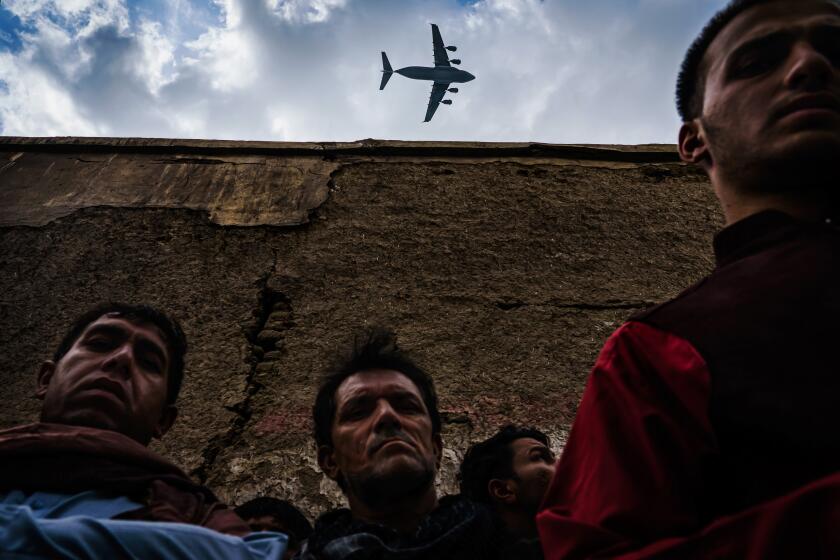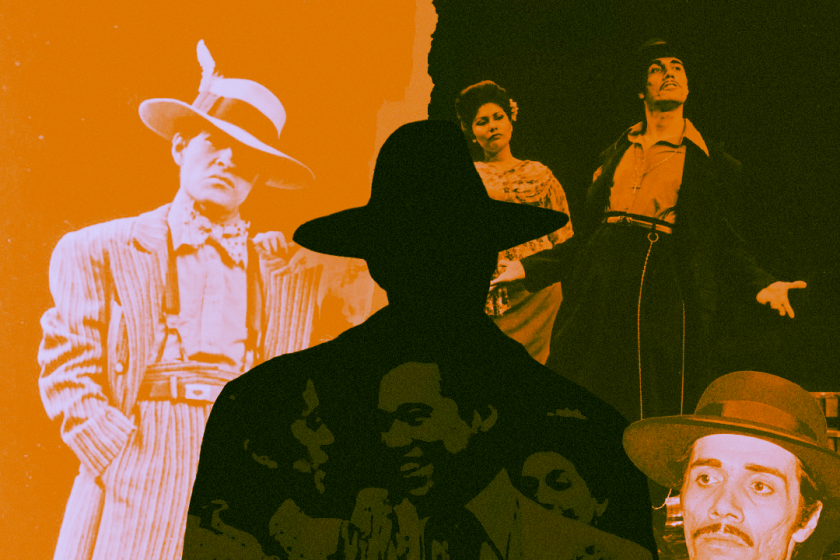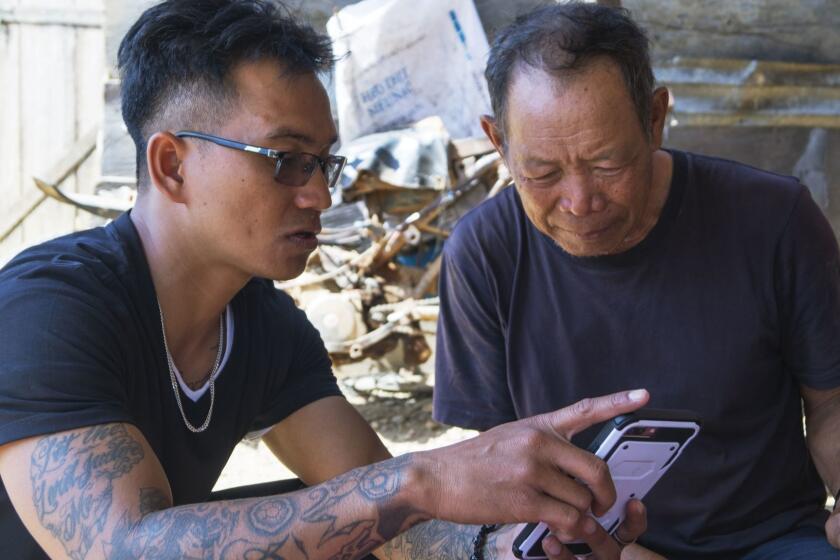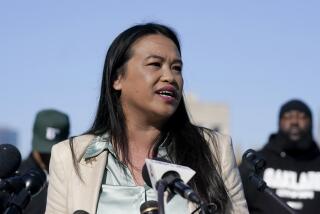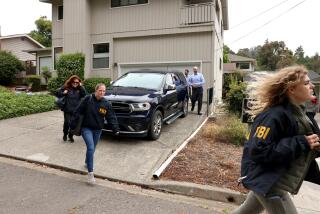Vietnamese president resigns amid anti-corruption campaign
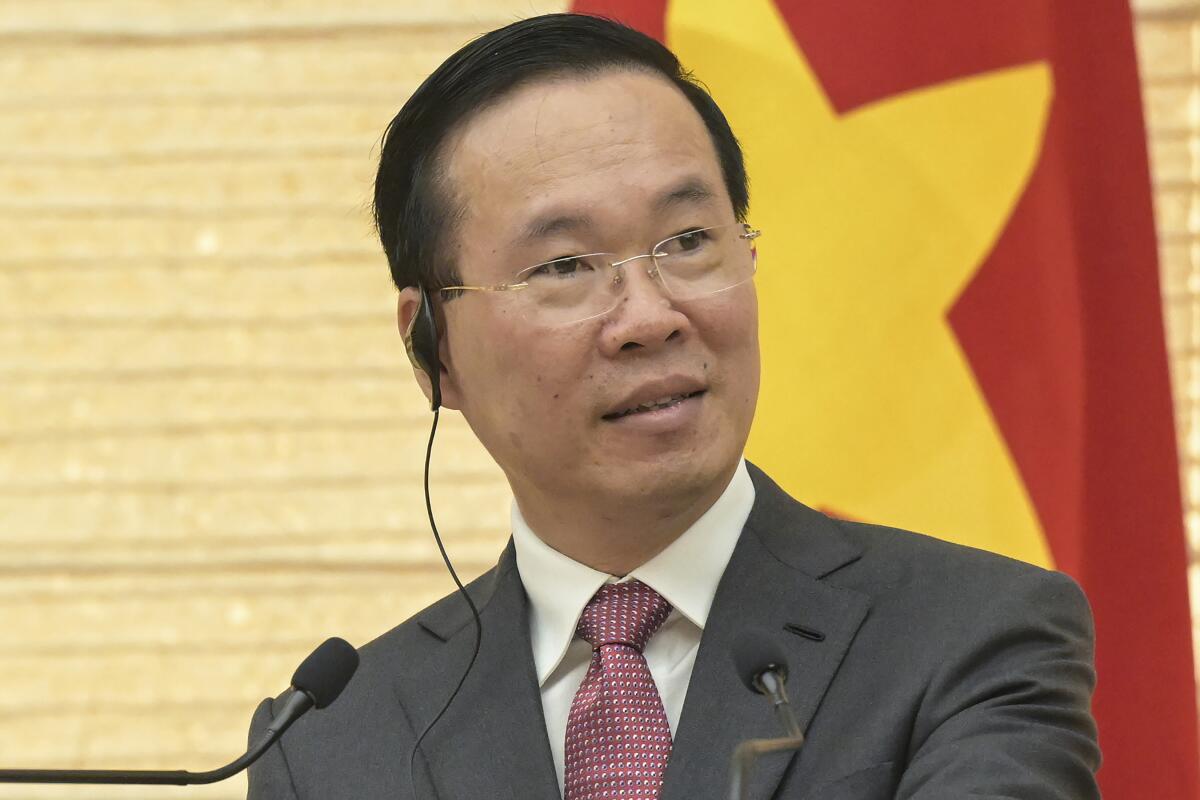
HANOI, Vietnam — Vietnamese President Vo Van Thuong resigned after a little over a year in the position, the Communist Party said Wednesday, making him the latest senior official to leave office after likely being implicated in an intense anti-corruption campaign.
The party said it had accepted his resignation, writing in a statement that “violations by Vo Van Thuong have left a bad mark on the reputation of the Communist party.”
Thuong is the second president to resign in two years, something analysts called a worrying sign for political stability in a country that plays a key role in the middle of U.S.-China competition and a growing one in global manufacturing.
His resignation came after weeks of rumors suggesting that he would be removed from office, and on the eve of a special session of Vietnam’s parliament dedicated to “personnel matters.”
In a nation where 58,000 American service members died, affordable care and a rising standard of living is luring back some veterans.
Days earlier, Vietnamese police said they arrested the former head of Central Vietnam’s Quang Ngai province for corruption. He was previously supervised by Thuong as the provincial party chief.
Thuong, 54, became president in March 2023, two months after his predecessor Nguyen Xuan Phuc resigned to take “political responsibility” for corruption scandals during the pandemic. He was the youngest president since modern day Vietnam emerged from war in the mid-1970s.
The position of president in Vietnam is largely ceremonial and ranks third in the country’s political hierarchy. The most powerful position is that of Communist Party general secretary, a post held since 2011 by Nguyen Phu Trong, who is 79.
The ideologically conservative Thuong was considered Trong’s protege, and his departure underscores the reach of the anti-corruption drive that has been Trong’s “most important legacy,” said Nguyen Khac Giang, an analyst at Singapore’s ISEAS-Yusof Ishak Institute.
Both wars ended badly, with U.S. efforts in tatters. But they were worlds apart in who fought, how and what came of it.
Truong’s “violations” had “negatively affected public perception, as well as the reputation of the Party and the state. Being aware of his responsibilities before the Party, the state and the people, Thuong has sent his resignation from his positions,” a party statement reported by state media VN Express International said.
The announcement precedes a meeting in Hanoi of Vietnam’s parliament scheduled for Thursday, when it is likely to approve the party’s decision to accept the resignation. It is unlikely that a permanent replacement would be elected very soon, Giang added.
It wasn’t clear what the exact nature of the violations was, but Thuong’s resignation took place days after the former head of Central Vietnam’s Quang Ngai province was arrested on allegations of corruption while Thuong was party chief in the province. The former head was part of an investigation into a real estate firm for alleged forgery.
The fact that the alleged violations were reported by the Central Inspection Commission, the Communist Party’s mechanism for carrying out the anti-corruption campaign, implied that Thuong was “implicated in the anti-corruption” campaign, Giang said.
A video of Vietnamese men dressed in pachuco style has gone viral on social media, sparking conversations about appropriation and who gets to partake in the culture.
The news of Thuong’s resignation broke in the evening when the streets of Hanoi were filling up with people returning from work. Almost everybody was on their phones, from young students in cafes to guards outside ancient monuments. The narrow winding lanes of the city’s Ba Dinh district echoed with the sounds of televisions.
The anti-corruption drive, described by Trong as a “blazing furnace,” has helped cement the top leader’s authority, but Giang said that factions in the party have also sought to use it to purge rivals.
Analysts have warned that the anti-corruption drive has hurt Vietnam’s business environment, making foreign investors jittery about unpredictable economic policies.
Vietnam has tried to strike a balance between its larger neighbor China and the U.S. while positioning itself as an ideal home for businesses looking to shift their supply chains out of China. Last year it was the only country that received both American President Joe Biden and China’s Xi Jinping on state visits.
Here in the windswept, rolling hills of central Vietnam, there are many reminders of the war that ended four decades ago.
The campaign has also meant a significant rise in the power of both state and party enforcement agencies.
Rumors of a potential political change flared after a state visit to Vietnam by the Dutch royal family was postponed due to “due to domestic circumstances,” according to a statement from the Dutch Royal house.
The World Bank president likewise put off a visit planned for this week.
Trading volume on Vietnam’s stock exchanges hit a record high on Monday as investors speculated over the president’s future.
Aniruddha Ghosal writes for the Associated Press.
More to Read
Sign up for Essential California
The most important California stories and recommendations in your inbox every morning.
You may occasionally receive promotional content from the Los Angeles Times.

